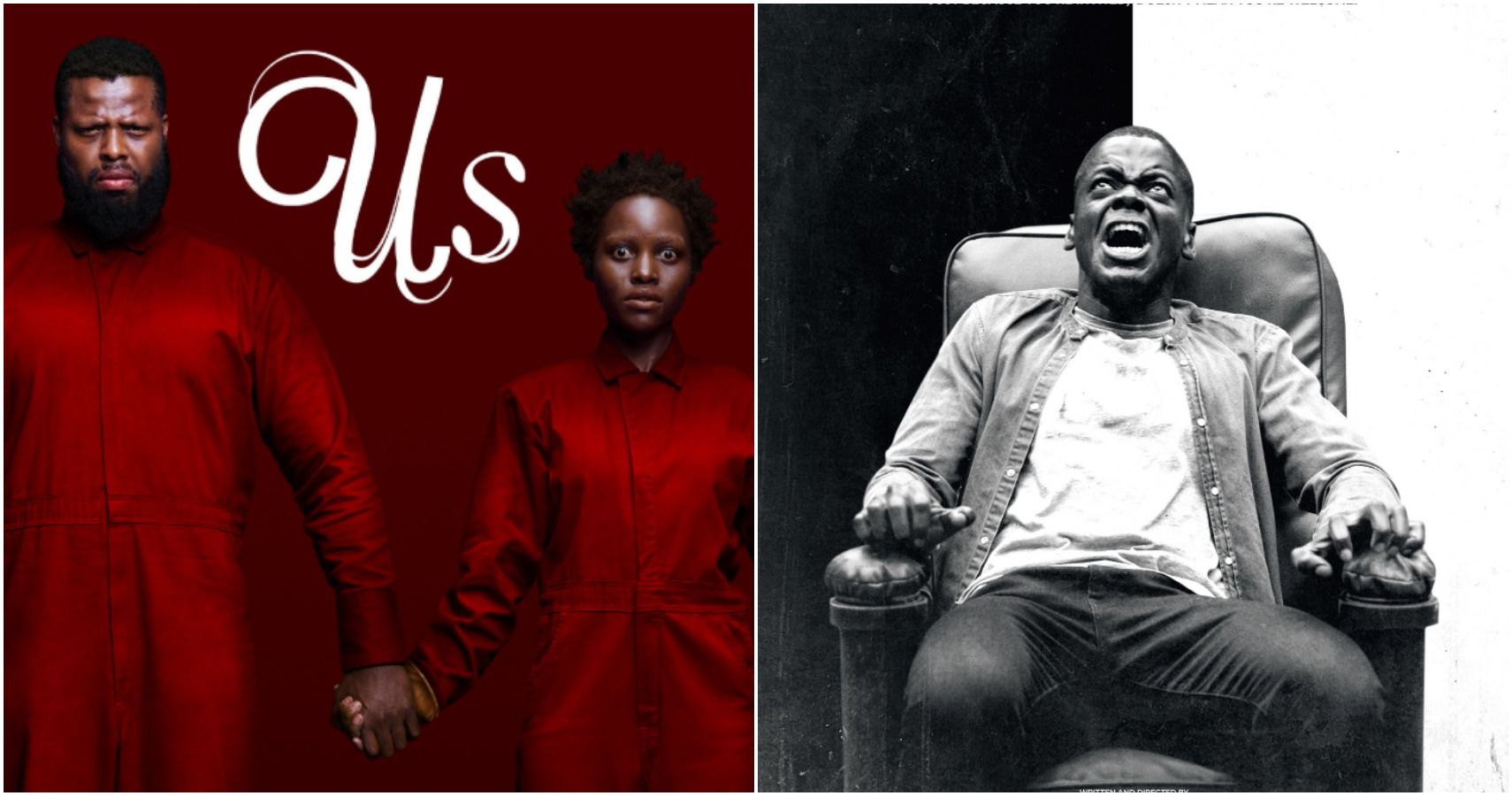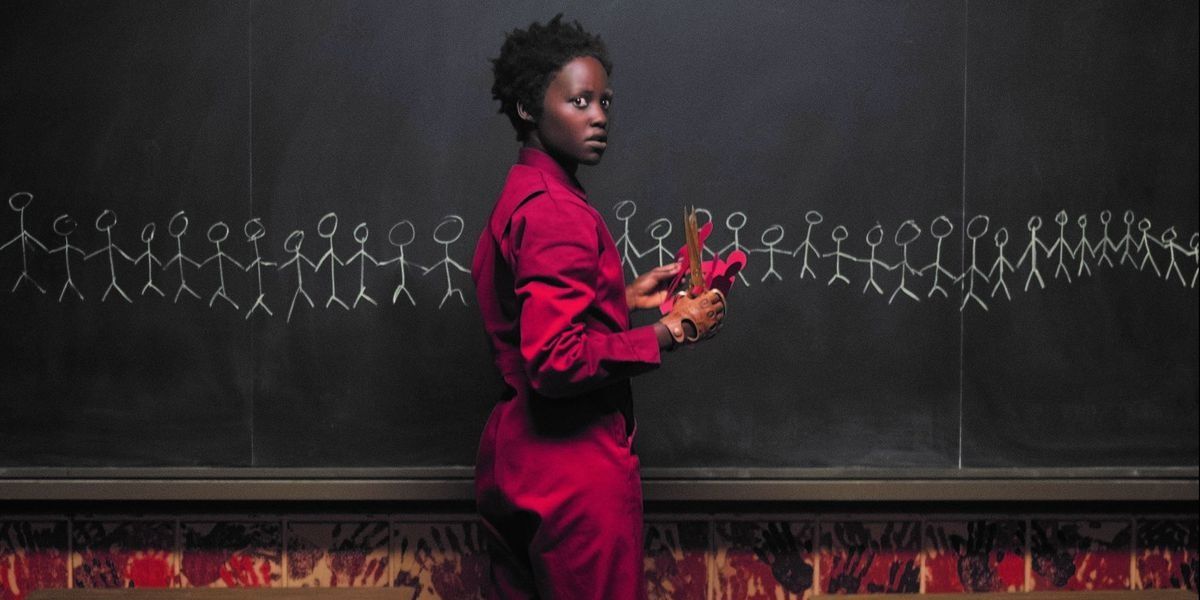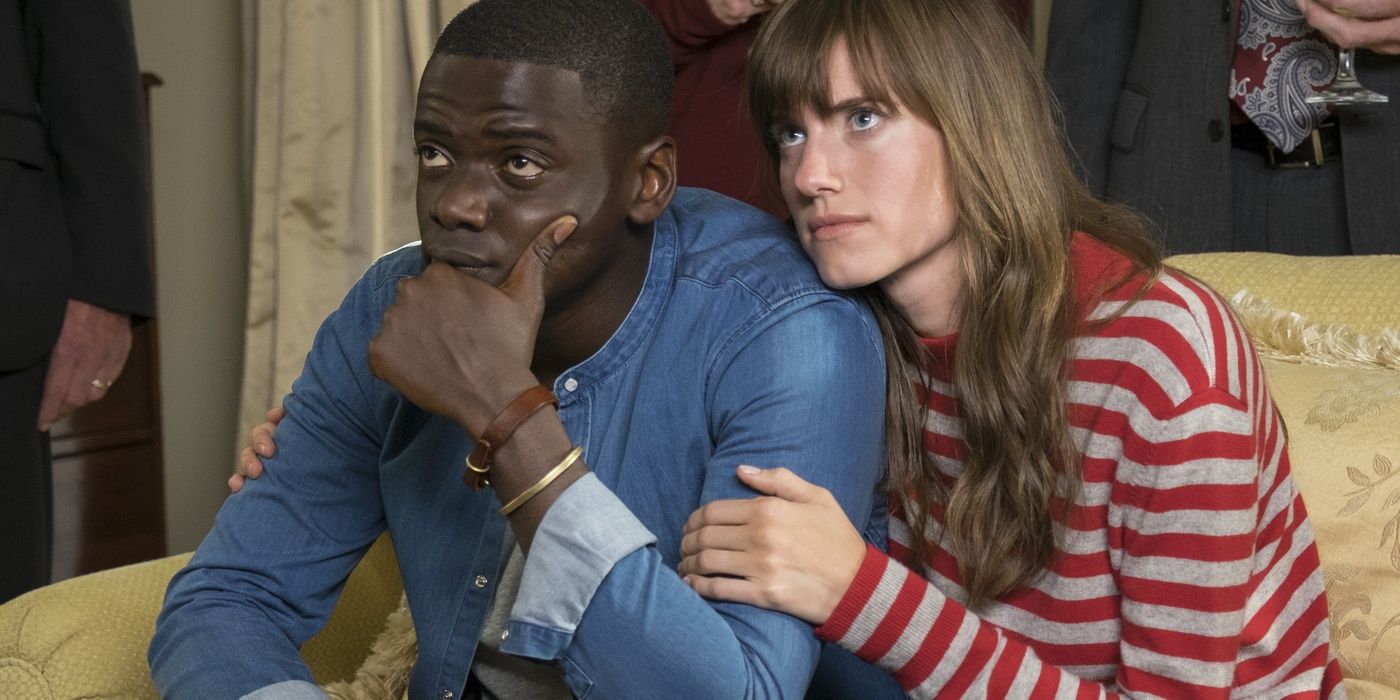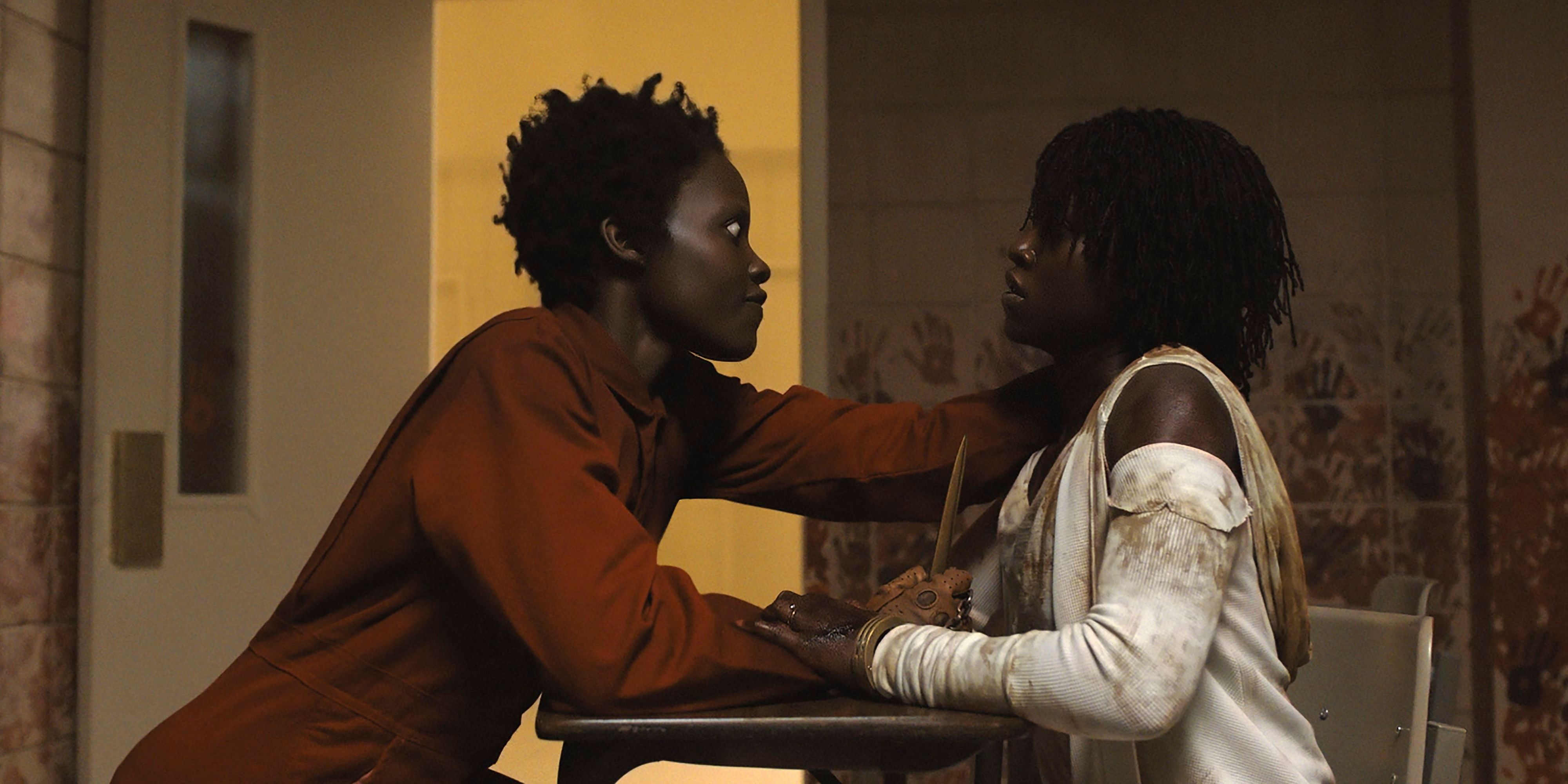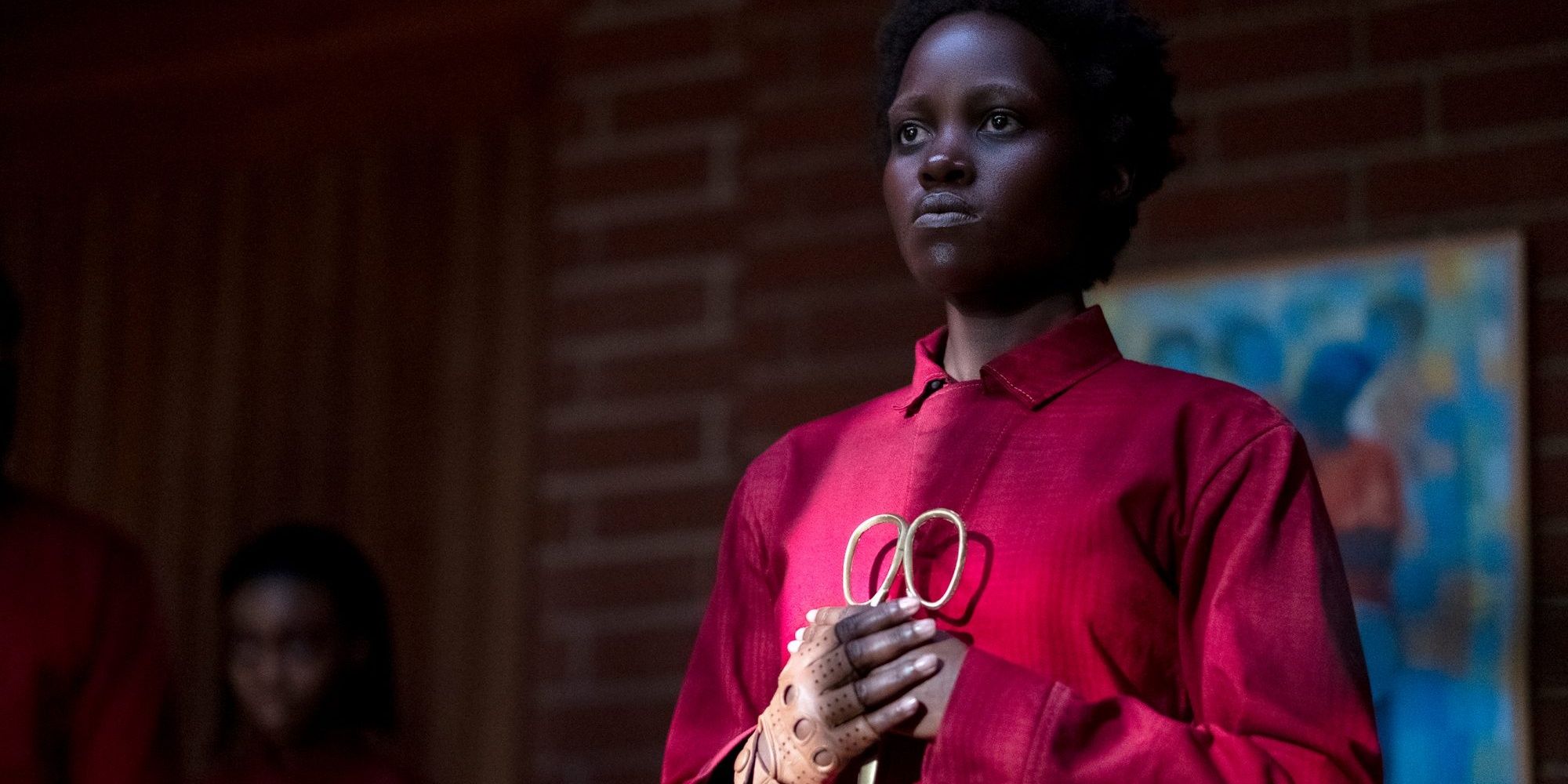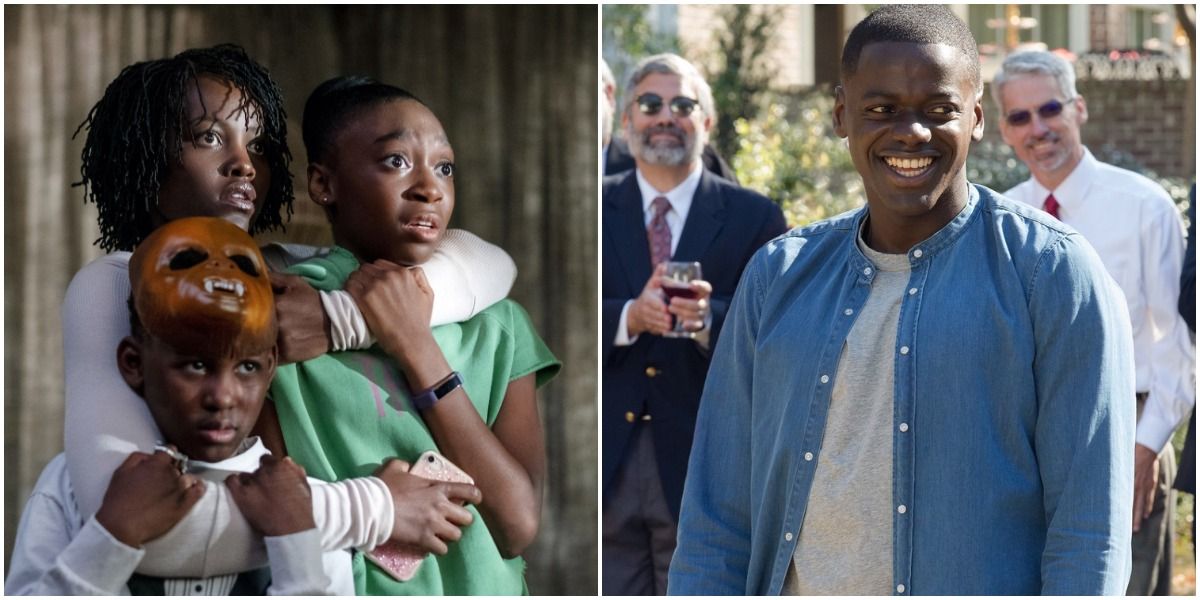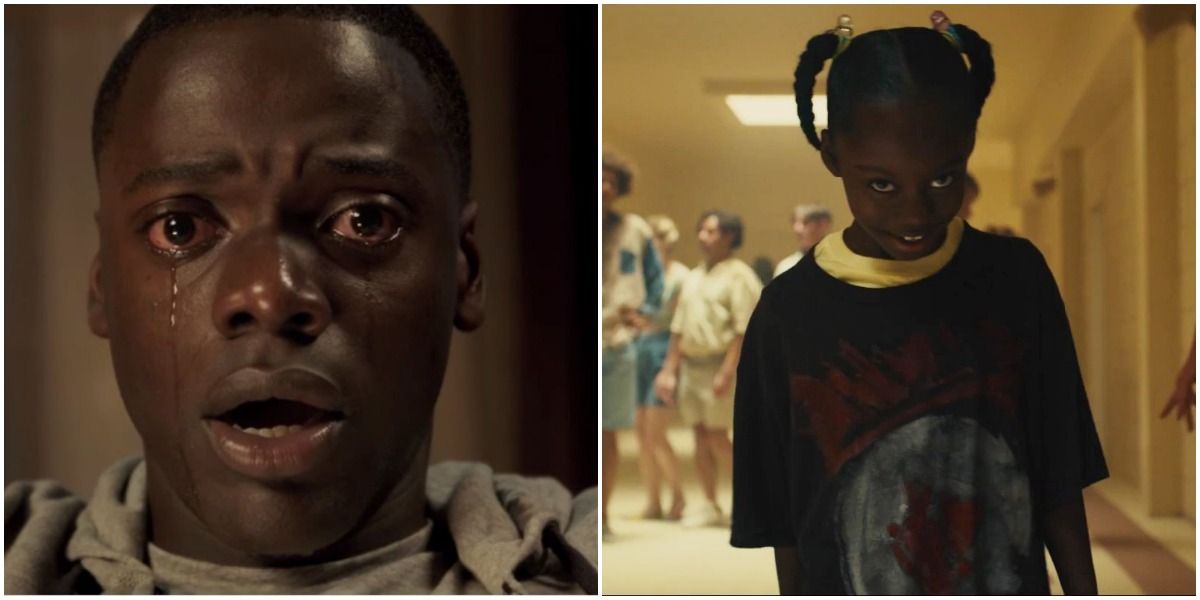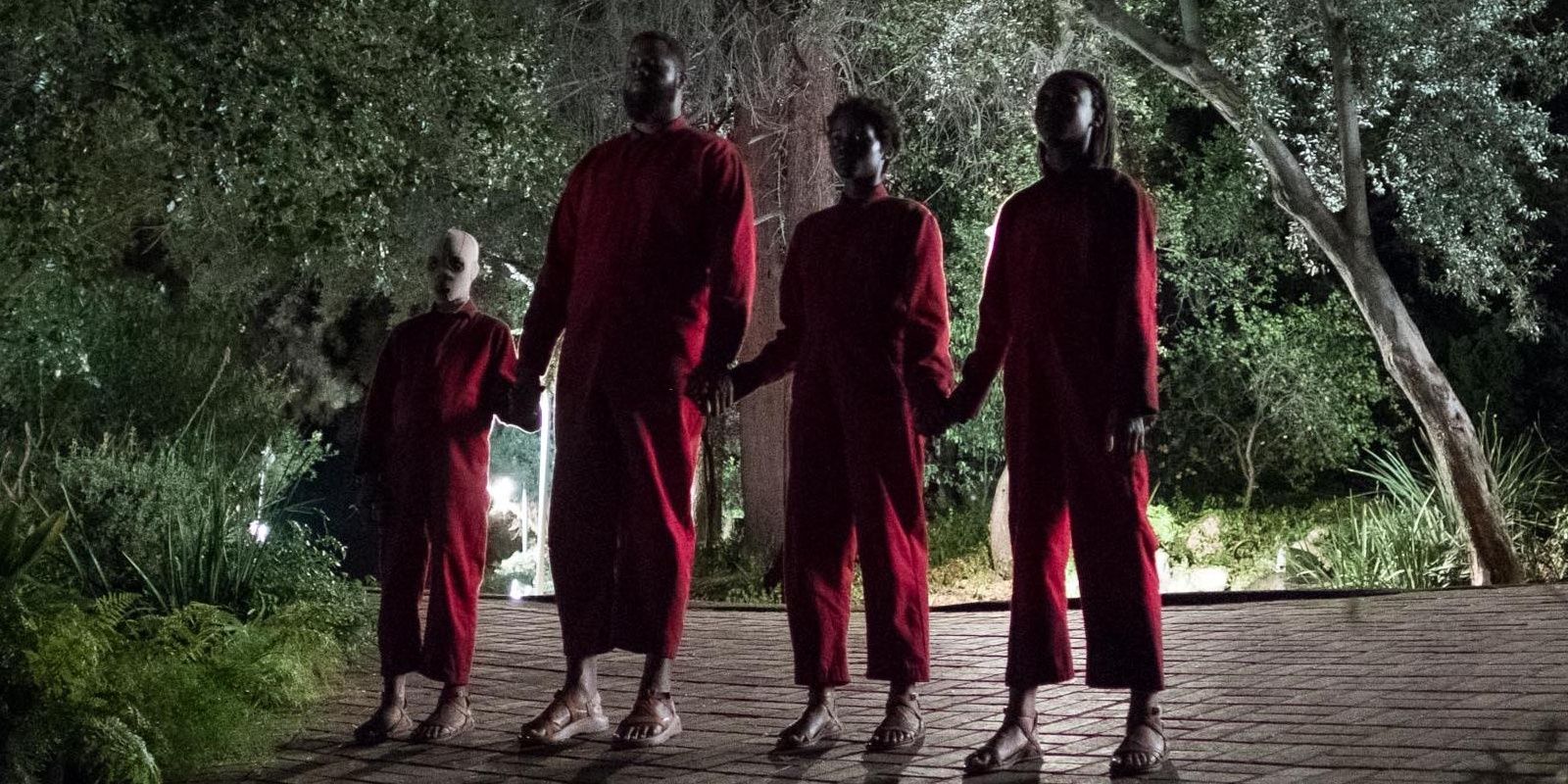Whether you were introduced to Jordan Peele in his sketch comedy days on Key & Peele with Keegan-Michael Key or first came by him through the horror genre realm, it's safe to say you've probably heard of him by now.
Jordan Peele shook up the film industry with his creative 2017 directorial debut Get Out as he presented a new story with new characters not yet seen in the horror and psychological thriller genres. He followed this with another film in the same vein, Us, that was released in 2019. He doesn't appear to be slowing down anytime soon as he's helped write and produce Amazon's Hunters and the remake of The Twilight Zone. Let's revisit some of the similarities and differences between his first two films, Get Out and Us.
Similar: Horror
Both movies start out with a normal couple (Get Out) or family (Us) and then they quickly deteriorate into the horror/psychological thriller genres. The first scenes of both films suggest that they won't be happy-go-lucky comedies as the audience gets a sneak peek of the horror to come.
The mind-bending plots of both films and violence portrayed weave together the horror and psychological thriller genres perfectly. Hopefully, Peele continues to walk this line in future movies and projects to come.
Different: Race Focus vs Class Focus
Although there is an intersection between race and class, and both films cover these topics with strong social commentary, Get Out specifically focuses on race while Us specifically focuses on class. Get Out follows a family of Caucasians targeting African Americans so they are able to use their bodies to live longer and healthier lives. Us has a clear class divide between the people who live on the surface of the Earth and The Tethered that live below them in the tunnels.
Similar: Supernatural Themes
Both Us and Get Out have supernatural themes at the center of their plots. Although both movies use supernatural themes, they introduce new ideas in the supernatural realm. You won't see any teenagers reading from old Latin texts or families haunted by poltergeists or demons.
Get Out introduces the idea of being able to control another's body after some hypnosis and surgery. Us introduces the idea that we all have doppelgangers that are plotting our demise. Both are supernaturally terrifying plots that will make you think twice about meeting your significant other's family or have you suspicious of your own reflection in the mirror.
Different: Recognizable Outfits
Halloween 2019 saw many dressing up as The Tethered from Us. The outfit is a red jumpsuit with a glove and gold pair of scissors, it's simple, yet recognizable and sleek. Although Get Out had its fair share of stunning visuals and there might be a case for someone dressing up as LaKeith Stanfield's character in a casual suit and straw hat, but it's not going to be anywhere near the iconic status of The Tethered's outfits.
Similar: Social Commentary
Although presented in different ways, commentary on society abounds throughout both Get Out and Us. Us covers major class disparities between the people living their normal lives on the surface without even realizing that The Tethered exist in the tunnels until they rise up and make themselves known. Get Out covers white liberalism as the privileged Armitage family act like they support African Americans, but ultimately only use them for their own personal gain.
Different: Clear Messages
The message and meaning behind Get Out was cut and dry and easy to follow while also being new and entertaining. The audience knows exactly what Peele is trying to say with the film and there's not much debate around what the movie means. Us is a different story. The message doesn't seem as clear and the social commentary seems to be a bit more muddled with more room for debate about what the story ultimately is saying, and there's nothing wrong with that.
It's an interesting difference between the two movies because typically directors seem to stick to either ambiguity or clarity in the meaning behind their films, and yet Peele has already shaken up his approach in his second film, which gives his upcoming work a sense of mystery.
Similar: Protagonists
Both Us and Get Out star black actors, which in and of itself sets these movies apart from the rest of the crowd. This move immediately subverts the horror movie trope of the token black character dying first when the inevitable killer shows up. Jordan Peele himself has said he's not likely to cast white leads in his films so he plans to continue on with this trend, and we can't wait to see what's next!
Different: Endings
Without explicitly giving away what happens at the end of either of these films there are clear endings of dread and hopefulness that are completely different. Us ends with more dread and doubt as the truth about Lupita Nyong'o's character is revealed. Get Out ends with a more hopeful ending as the Armitage family doesn't succeed in their heinous plan, and we can hope that there will be justice.
Similar: Comedy
Comedy showing up in both Get Out and Us is not surprising at all given Jordan Peele's history in the comedic world. The comedy appears naturally throughout both films and never feels forced or weakens the horrific overall plots. Most of the cast in both films aren't known for their comedic acting, but everyone does a great job with stellar scripts and direction from Peele. It's a fun change of pace as neither is exactly a comedy-horror, but more of a horror film with sparse comedy throughout.
Different: Scale of People Affected
Get Out is a focused film on a family and victims are sought and tricked into coming to their house. Not many people are affected in this movie unless they are friends with the Armitages or are unfortunate victims of the family. On the opposite end of the spectrum, Us seemingly affects every single person in America as everyone has a Tethered counterpart.

